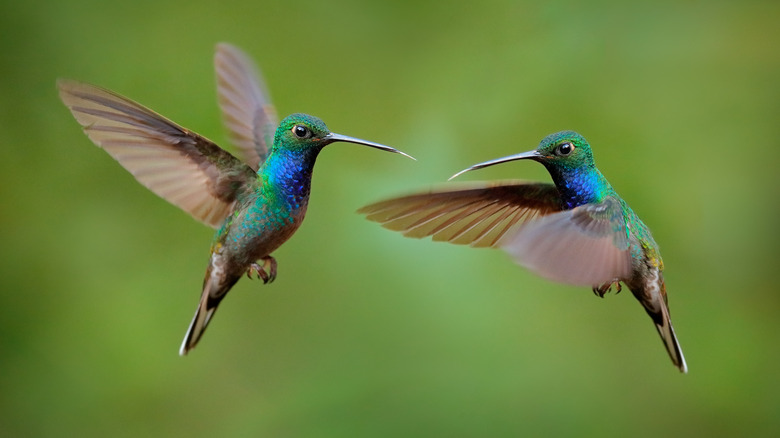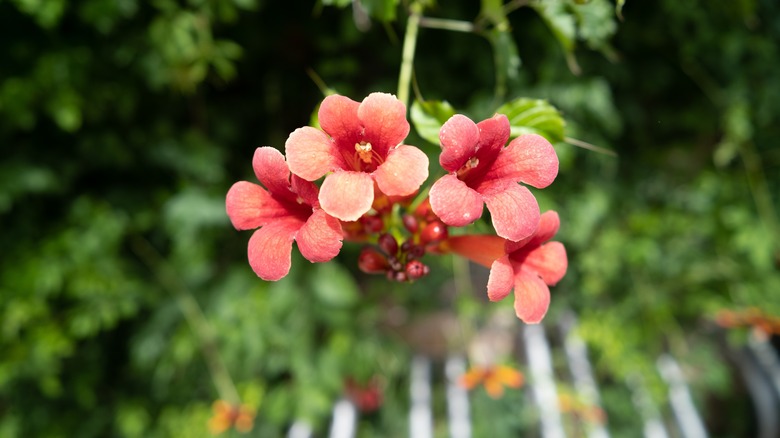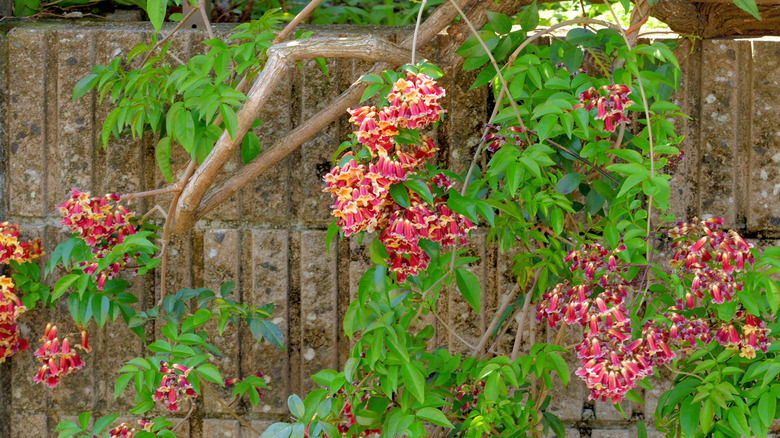The Beautiful Blooming Vine Hummingbirds Can't Resist
Hummingbirds are truly some of the most fascinating and unique birds out there. Often, people grow non-native plants to attract these teeny tiny creatures, but this does not benefit our native ecology in the long run. In fact, it can do more harm than good. However, crossvine — a gorgeous native floriferous vine — is an excellent alternative to many common invasive ornamental garden vines.
Also known as Bignonia capreolata, crossvine is a stunning flowering vine with flowers that resemble the trumpet vine. It's an excellent alternative to the invasive Japanese honeysuckle. And in addition to adding a fiery flush of flowers to your garden or yard, it just so happens to have a longstanding relationship with the birds of the hour — hummingbirds! Since hummingbirds are only native to the Americas, they have robust and ancient relationships with our native flora and fauna in each ecoregion. If you want to attract hummingbirds to your yard, your best bet is to plant native, flowering plants that have evolved alongside these animals. Crossvine flowers, for example, are pollinated by hummingbirds, so when you plant this vining beauty, you are supporting a mutually beneficial, long-established relationship. This low-maintenance, drought-tolerant vining plant is one of the best native plants to add to your garden to attract hummingbirds.
What is crossvine?
Crossvine is a beautiful vining plant in the trumpet creeper family native to the southeastern United States. It has a tropical floral vibe, and its gorgeous clusters of large, brightly colored flowers are hummingbird magnets. With a vining habit and long adhesive tendrils, crossvines can climb up practically any material and are not fussy in the garden. Tolerating full sun and part shade, they are often found in swampy woodland areas in the wild — usually climbing up a pine tree. As for the evolutionary relationship between hummingbirds and crossvines, it truly seems as though the plants were made for hummingbirds. Notably, they bloom in early spring, when hummingbirds return from their winter migration, and again in the fall, when the animals prepare to make the trek south.
A much better alternative to the aggressive, musical-sounding trumpet vine often planted for hummingbirds, crossvine has a milder growth habit and isn't as likely to completely overtake your garden. It can grow up to 50 feet and provides a lovely vertical design textural element to any garden. Crossvine flowers are typically bright orange to red, with a yellow throat and splashes of purple. A true show-stopper, crossvine is a must for any gardener looking to attract hummingbirds to their garden.
Growing it to attract hummingbirds
As with most native plants, crossvine is easy to grow, low maintenance, and drought tolerant in the garden. Because our native species have evolved in their respective ecoregion, when you plant native plants in your area, you significantly reduce the inputs you need to put into your garden. Crossvine is a gorgeous, hummingbird-attracting example of this. Readily available in many native plant nurseries across the southeast, crossvine now comes in a few different ornamental cultivars.
While it can grow in full shade and full sun, if flowers are what you want, plant your crossvine in full sun. In the shade, it will produce lots of lush and full foliage — but the flowers will be sparse. In full sun, you'll get significant flushes of fragrant flowers that bloom throughout spring and fall. Thriving in a variety of well-draining soils, it prefers a neutral pH. It can grow in sandy soils, but it prefers some organic matter, so you can always add some compost when you plant it. As mentioned above, it's virtually drought-tolerant once established, so it works great for an all-native wildflower bed that does not require irrigation. Occasional hand watering can help during dry spells. If the vine starts taking over areas of your garden, prune and shape it after it flowers in the spring. Crossvine and hummingbirds were made for each other — adding this beauty to your garden is sure to attract these special visitors.



